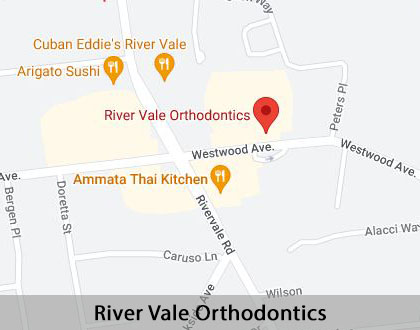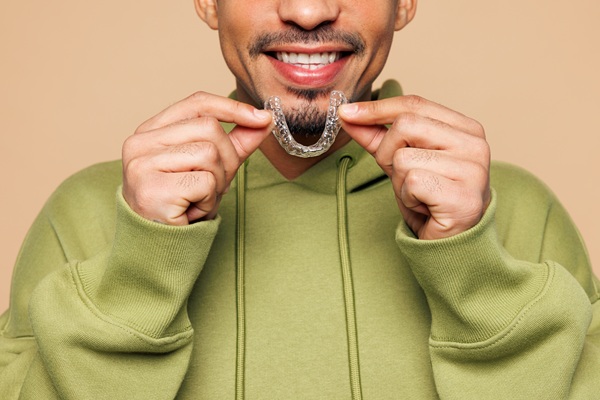Corrective Jaw Surgery River Vale, NJ
Dental providers can fix many jaw disorders through in-office treatments. Braces and clear aligners can help repair a jaw disorder. These treatments gently guide a misaligned jaw into the correct position. However, jaw surgery may be necessary for some patients. Corrective jaw surgery might sound frightening, but this procedure can improve your quality of life.
More information about jaw surgery is available at River Vale Orthodontics in River Vale and the surrounding area. Our team offers a wide range of treatments for jaw disorders and work with patients to establish a healthy bite. Call us at (201) 613-1100 to learn more.
Preparing for Jaw Surgery
Before scheduling surgery, the dental team discusses all treatment options and explores alternative treatments. They also review the possible consequences of delaying surgery. The dental team helps families make informed decisions about patient care.
If the family decides to move forward with surgery, the team makes preparations. Sometimes, the team might make adjustments to existing appliances like braces. Orthodontics for jaw surgery can streamline the treatment process and ensure optimal results. The patient's follow-up appointments after their procedure will also be planned. The dental team will explain what steps the family needs to take in the days leading up to the surgery.
After jaw surgery, the patient might be in the hospital for a few days. The full healing process can take 6-12 weeks. During this time, the patient must make some adjustments to their diet. They may also need to avoid physical activity or specific medications. The dental team will provide detailed instructions about at-home care.
“Before scheduling a surgery, the dental team discusses all treatment options and explores alternative treatments.”
When Jaw Surgery Is Required
Orthodontic appliances can fix many jaw problems, but sometimes surgery delivers better results. The dental team may determine that braces alone cannot shift the jaw into the correct position. Surgery allows the team to make significant changes to the shape and movement of the jaw.
Surgery also helps repair congenital disabilities. If a child was born with dental problems, surgery is a possible option to restore healthy mouth function. Surgery also may resolve issues linked to sleep apnea. In some cases, jaw surgery can treat or prevent a life-threatening medical condition.
After surgery, patients eat and breathe with greater comfort. They usually experience less jaw pain. Surgery also reduces the risks of other dental problems, such as tooth decay. Some patients feel that surgery enhances their appearance, too. Jaw surgery can adjust the chin and bring facial features into balance. Many patients feel more confident after their surgery.
“Surgery allows the team to make significant changes to the shape and movement of the jaw.”
Types of Jaw Surgery
Several different types of jaw surgery are available. The dental team can let you know what kind of procedure they recommend. In some cases, the team may focus on shifting the upper or lower jaw. They might restructure the chin or add bone to the jaw. These surgeries adjust the shape and position of the jawbone.
Sometimes, however, patients may also need temporomandibular joint (TMJ) surgery. This surgery targets the sliding hinge that allows the lower jaw to move freely. TMJ problems are often linked to jaw deformities. Without treatment, patients can develop crooked teeth, uneven wear, and dental decay.
The dental team can determine whether you need TMJ surgery and if the procedure is right for you. Some TMJ procedures are minimally invasive, with a short recovery time. Other procedures require open surgery. The dental team can help explore the options.
“TMJ problems are often linked to jaw deformities.”
Check out what others are saying about our orthodontic services on Yelp: Corrective Jaw Surgery in River Vale, NJ
The Jaw Surgery Procedure
On the day of their procedure, patients begin by checking into the hospital. A nurse provides a checkup and helps the patient get ready. Family members can usually stay in the room for this process. The surgeon visits with the family to answer any last-minute questions. Next, patients receive anesthesia. This medication allows patients to sleep through their procedure.
Inside the operating room, the surgeon may use several different surgical techniques. The surgeon might remove part of the jawbone or add bone to the jaw. Sometimes, the surgeon may remove soft tissue inside the mouth. After repositioning the jaw, the surgeon fixes the jaw into place.
Patients are taken to a recovery room after surgery. Nursing staff provides pain medication and close monitoring during this period. After a few hours, the patient moves to their hospital room. Most jaw surgery patients are kept at the hospital for 2-4 days. The team provides regular checkups and confirms that the patient is healing well. Once the patient is on the road to recovery, they are discharged from the hospital.
“Most jaw surgery patients are kept at the hospital for 2-4 days.”
Questions Answered on This Page
Q. How do I prepare for jaw surgery?
Q. When is jaw surgery necessary?
Q. What types of jaw surgery are available?
Q. What happens during jaw surgery?
Q. How long does it take to recover from jaw surgery?
People Also Ask
Q. What treatments are available for malocclusion?
Q. How do bite problems affect my oral health?
Q. What are the causes of bite issues and why is it important to fix them?
Recovery Process
The patient must follow a strict diet in the weeks after their surgery. At first, patients stick to liquids. After a few days, they can shift to soft foods. The dental team may recommend soft foods for up to six weeks after jaw surgery.
Recovering from jaw surgery takes time. Patients usually remain at home for 1-3 weeks. Delay strenuous activity like sports for at least three weeks after surgery. Patients should also avoid smoking or chewing tobacco. These substances can trigger infection and slow down recovery.
After six weeks, the dental team may adjust any orthodontic appliances. They may install braces to finish aligning the teeth and jaw. The team might also recommend other appliances, such as removable retainers. These devices help to deliver optimal results after jaw surgery.
The entire recovery process takes about 12 weeks. Most patients recover without complications, but every surgery carries some risks. In rare cases, patients may develop an infection or nerve injury after surgery. The jaw may also shift back to its original position, requiring further treatment. The dental team can provide more information about the risks and benefits of jaw surgery.
“The dental team may recommend soft foods for up to six weeks after jaw surgery.”
Frequently Asked Questions About Corrective Jaw Surgery
Q. Where can I receive an assessment for jaw surgery?
A. Many patients are unsure whether oral surgery is right for them. Our dental team can provide in-depth consultations to weigh your options, as jaw surgery may not be suitable for every patient. In some cases, orthodontic treatments may be a better fit. Dental providers can correct some jaw problems through braces or headgear. During your consultation, our team can discuss alternative treatments in more detail.
Q. What happens during jaw surgery?
A. Several different types of jaw surgery are available. Each surgery has a specified goal and treatment method. During your evaluation, our team determines what kind of surgery you might need. We provide details about your chosen procedure and the recovery process.
Jaw surgery takes place in a hospital under general anesthesia. The surgeon makes the necessary adjustments to the patient's jaw. Then, they use screws and metal plates to fix the jaw in place. Afterward, patients may remain at the hospital for a few days.
Q. Is jaw surgery my only treatment option?
A. Braces and headgear can realign the jaw or fix bite problems. Palate expanders can be helpful for young children, too. These appliances gradually widen a child's upper jaw. During your consultation, our dental team can review these treatments. We can help you determine which treatment meets your unique dental needs.
Q. What kind of follow-up care will I need?
A. After jaw surgery, you can expect several follow-up visits. During these visits, the dental team checks for signs of infection. They make sure you are healing well. The team also assesses your bite to determine whether surgery produced the desired results.
Many patients still need orthodontic care after surgery. After your jaw has healed, the team can adjust your orthodontic appliances. They prepare for the next step in your treatment plan.
Q. How long does it take to recover from jaw surgery?
A. Most patients can return to school or work within a few weeks. However, patients may still feel sore. Our dental team can explain how to handle post-surgical discomfort. We also help patients develop a dietary plan after their jaw surgery. Patients may need to avoid certain foods for several weeks. Following the team's aftercare instructions helps ensure positive results.
Quality Orthodontic Services Can Transform Smiles
By visiting us as soon as possible, our team can help get you the professional treatment you need.
Definition of Orthodontic Terminology
Reach Out Today
Jaw surgery can sound intimidating at first, but this procedure can help resolve stubborn jaw disorders. The dental team can use surgery to bring your jaw back into alignment and greatly reduce your risk of dental problems in the future.
If you are curious about jaw surgery, let River Vale Orthodontics in River Vale provide more information. Call us at 201-613-1100 to learn more about our services and policies.
Helpful Related Links
- American Dental Association (ADA). Glossary of Dental Terms. 2021
About our business and website security
- River Vale Orthodontics was established in 2023.
- We accept the following payment methods: American Express, Cash, Check, Discover, MasterCard, and Visa
- We serve patients from the following counties: Bergen County
- We serve patients from the following cities: River Vale, Westwood, Norwood, Old Tappan, Emerson, Woodcliff Lake, Montvale, Park Ridge, Washington Township, and Harrington Park
- Norton Safe Web. View Details
- Trend Micro Site Safety Center. View Details
Back to top of Corrective Jaw Surgery







